#their existences and lives are so stunted and warped...
Explore tagged Tumblr posts
Text
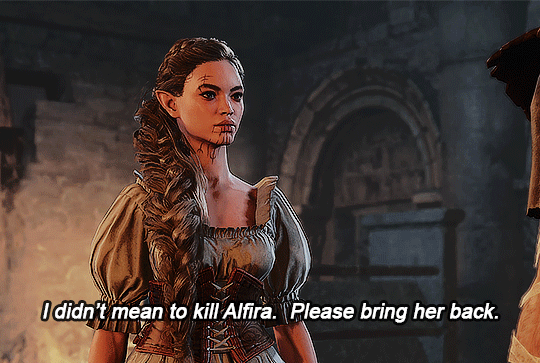
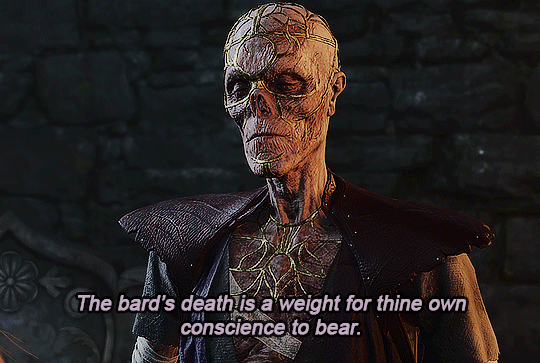
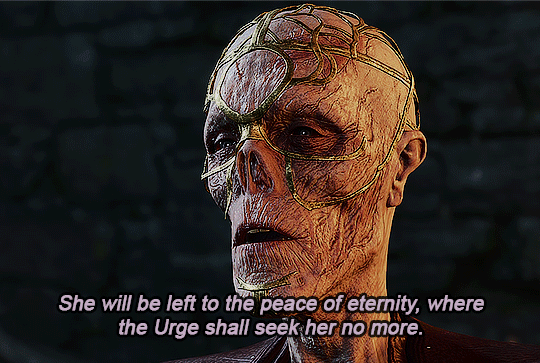
BALDUR’S GATE 3 (2023) — developed by larian studios.
#gamingnetwork#vgedit#videogameedit#gamingedit#dailygaming#gameplaydaily#bg3edit#bg3#bgedit#baldur's gate#baldur's gate 3#the dark urge#bg3 withers#briar bellegarde#i love this. its so....childish somehow?#i didn't mean to. im sorry. please fix it.#esp when so many of the durge-centered lines are so violent and aggressive#the little please.......its such a contrast#the durge rly does feel like....well like a mass murdered obviously#but also like a kid. in the same way orin is a kid yknow#their existences and lives are so stunted and warped...
179 notes
·
View notes
Text
Zaunite Sign Language
We see in the show that touching foreheads with one another seems to be a very intimate thing to do for Zaunites. It is not necessarily romantic, but signals to a deep, strong bond between those who do it. Well, since Zaun was clearly a mining town, I think this habit comes from those times. We also see Felicia putting her fingers to her forehead as a way to greet her children, which could just be coincidence but I am insane and refuse to believe that coincidences exist in this show.
I think that, as deeply clothed as miners have to always be, letting someone else touch your forehead and general face eventually became a sign of intimacy between them, since it was one of the completely exposed areas of the body. Now, I know we see young Vander and Silco with not-so covering clothes (edit: yeah they put on those big ass coats. for some reason I forgot while writing this lol), but I’m being a bit more realistic here. I have family that lives somewhat close to Mina del Limón, which is a mining site here in Nicaragua, and people usually try to cover themselves up to avoid getting dirt directly on the skin, since a lot of the times this not only gets them dirty but ends up in mean rashes or other sorts of skin infections, depending on what layer of soil they’re working on at the moment.
All of this to say: I think Zaunites have a lot of signs that involve touching your forehead and involve only one (the other one usually busy with a tool or doing something else), since the noise in the mines would make spoken communication difficult and you can not just stop and walk over to someone in the middle of an excavation and signaling on other parts of your clothes would be harder to see if your hands are covered with soot, since their main light source would come from the helmets, ergo: their forehead/face would be the best illuminated part of their bodies. I headcanon things like touching up their index and pointer finger to their foreheads to then flick them up would mean things like “I’ve got you”, dragging their finger across their entire forehead “This is over/We can leave”, dragging their fingers from top pf forehead to tip of nose would be “I’m down/Can’t keep going/Help me/I need assistance” and so on. In a lot of circumstances where normal communication is stunted, languages tend to develop in other ways (like the Silbo Gomero, a whistled language in Canary Islands developed due to the distances)
I also think that, eventually, this evolved in Zaunite Sign Language (in a similar way to how Nicaraguan Sign Language evolved), which is what I personally Isha as being able to speak. I think almost everyone would know the very basic signs, since their parents teach them before they start going to work (and we see a lot of children working, so, very early) and these children would eventually teach their peers, even the ones that don’t work on the mines, so it’s a fairly widespread way to communicate. Add to this the time after the revolution, where a lot of miners would surely need to go into hiding for a time if they survived, or even before that, when they were planning and could not risk people hearing them — those would be circumstances that would surely foster and improve these signs!
I don’t know, I just really like linguistics and am a huge sucker for the development of cultural communication methods. Does this make any sense. Does any care. Should I expand on this. I mean I probably will because this blog has become a warped version of my journal but I still have to ask. To be polite.
#arcane au#jinx arcane#vi arcane#arcane#jayce talis#viktor Arcane#imagine jayce and cait slowly picking up on the signs and imitating/obeying them#oooooouuuuggghhhhh their partners so in love when they catch on what's happening#jinx and ekko doing a quick “I love you” (drawing a circle in the middle of the forehead then pointing to each other)#jinx going “I need help” in sign because saying it out loud feels to tiresome#ekko arcane#timebomb#jayvik#caitvi
70 notes
·
View notes
Text

ok the topic of barty crouch jr and the bone motif came up, but his specific phrasing here is what really sticks in my brain & is the basis of my stance on barty’s story as an allegory for bodily autonomy. yes there is something obviously satisfying in a character who spent 12 years under imperius, his body used a puppet, choosing to murder his abuser through transfiguration rather than a more conventional method like the killing curse. this is the only instance of death-by-transfiguration in the series. but i think the way he phrases this (became a bone, not ‘turned into’) belies a deeper understanding of barty’s relationship to having a body in general.
barty crouch being denied bodily autonomy goes far deeper than the imperius curse. i see it as sort of a haunting refrain that characterizes his entire life actually. he goes from servitude, to imprisonment, to switching bodies with his mother, to the imperius curse (kept under an invisibility cloak— he can’t even see himself), to the polyjuice potion, to that ironic “death” by the dementor’s kiss; his body goes on without his soul. it’s worth noting that the only time barty appears on-page as himself his body is controlled (yet again!) and forced to speak under veristaserum. do you think there was a strange comfort in that, for him? i just mean that he’s never known anything else.
i want to look at this through a hypochondriacal lens, where the experience of having a body (or being embodied) is a contestatory relationship wherein the mind strives for order/structure/immutability but the body is inescapable— it brings disorder, change, and a continual loss of control. the body is both fundamentally unknowable and hurtling towards death and illness: the hypochondriac seeks to rationalize & control this, but it’s ultimately an exercise in futility. i see these anxieties really present in barty crouch jr’s character: someone whose body has been puppeted or transformed into a different shape more than it has actually been his own.
i’m not saying that barty IS a hypochondriac (he’s not), but that his character arc functions inside the same epistemological framework: one where the unruly body is a prison because of how it’s subject to/harbinger of continual change. but this relies on a really clear division of the body and mind as separate entities. or even, like, a division between the body and this more ephemeral idea of “the self”— a soul that resides in the body but is somehow separate from it (and we know the soul is canon in the world of harry potter). barty crouch collapses this dichtonomy in a really interesting way with his statement: his father became a bone. as in, he is no longer himself and he is just that bone now. barty is introducing the idea that the soul doesn’t really matter or even exist, and that once your body takes the shape of something you fundamentally are that thing, for better or worse.
and i don’t know! this strikes me, especially coming from a man who has lived twelve years as an empty vessel— why would he believe in a soul if his has been erased and overwritten so many times? his own sense of self is too stifled and warped and stunted. this is the same character who was able to embody moody so fully and convincingly that it was impossible for even dumbledore to tell the difference. i think this was possible because of barty’s weird relationship to embodiment, where his actual “self” is hazy and loosely defined— perhaps the result of so many years having it denied, stifled, or unable to develop— but he becomes whatever shape his body is taking. (it’s interesting to note, too, that barty didn’t say that he transfigured his father. rather, he “transfigured [his father’s] body”, and this was enough for his identity to dissipate and him to become something else). to barty, the “self” is not an independent entity that is subject to the body’s change and disorder— his “self” is the very body itself, and all the fear, and change, and loss of control that comes with it.
this is why the ending with the dementor’s kiss gets me so bad. if the body is all he really is, then this fate is the perfect closure. barty is finally reduced to all he has ever been: erased. an empty vessel. just the image of himself, with nothing inside it. what’s really changed?
#barty crouch jr#how do i even tag this. mucho texto#UNDERSTANDERS WILL UNDERSTAND!#barty meta tag#saints speaks 🐇
267 notes
·
View notes
Text

When the betrayal occurred, dragon kind earned the ire of the Church, and thus the hate of the entire land. To besiege the holy city, to burn the great cathedrals and attack the beloved Ichor. Such blasphemy and treason can never be forgiven. So it was there that it was decided that the dragons would perish, their ties to the Church severed and the armies now aimed at their throats. Throughout the land, the dragons would become hated symbols, and even commoners would spit upon the mere mention of their name. The dragons earned themselves powerful enemies, but man was not the first to despise them. There are others who hate the dragons with a terrible passion, who can never forget a grudge that has haunted their kind since ancient times.
It is common knowledge that Oliphants hate dragons, flying into a rampage whenever one is sensed. They never took well with the ancient dragons, but didn't stand a chance against such massive foes. However, with their stunted descendants now roaming the lands, these great beasts finally have suitable targets for their disgust. When a Lesser Dragon and an Oliphant meet, it is usually a battle to the death, neither side willing to surrender to their ancient foe. Even trained Oliphants strain against their orders and conditioning when faced with the opportunity for vengeance, and owners struggle to keep them free of the fray. As it stands, no one truly knows why the Oliphants hate the dragons so, but now that the vile reptiles are forsaken in the eyes of the Church, folk are eager to join their rampage.
With this knowledge in mind, it is no wonder why this abomination gained such a title. Oliphants and dragons do not mix, until now, when a select few of their kind have been warped by Eitr. For whatever reason, they were exposed and thus have become monsters. Thus have gained the title of Primal Paradox. These beasts are a mix of Oliphant and dragon, born by the leaking Eitr. Their hide is armored by scale, and their snouts now breathe Primal Flame. From this mutation comes great power and strength, and also a violent rage.
Primal Paradoxes appear to retain the knowledge of the Oliphants' grudge, as well as know that the blood of dragons flows in their veins. Within them is a battle between these two sides, in constant war with parts that can never mix. The Primal Paradox is a creature of ceaseless violence and anger, disgusted by the world and even itself. It cannot stomach its own existence, nor the world that created them. Thus they destroy and burn all around them, terrorizing and trumpeting til they finally meet their end. Some find this endless rampage a good thing, as they inevitably burn themselves out. Primal Paradoxes do not live long, as they are either slain or their bodies give out from stress and its self-destructive tendencies. But many are not willing to wait for this to happen, as they carve a path of carnage wherever they roam, smashing and burning all. Yet their armored hide is difficult to pierce, and their snout spews great plumes of Primal Flame. Their forelimbs punch and smash, while webbed ears fan the fires of their hate. Their lives are of constant chaos and din, only falling silent when the blade cuts them down. Death is where they find peace, and so many hunters feel obligated to grant these monstrosities that final comfort.
Despite their dual warring natures, folk have noted that their mutation is quite thorough. While other Primal Beasts show mere shades of Eitr and dragon scale, the Primal Paradox is fully armored and efficiently wields Primal Flame. There is no tainting in their fire, no humors turned wrong. Some would swear this form fits them like a glove, despite their endless self-loathing. It bears the question of the Oliphants and Eitr. Are these two sides truly separate from one another? Does their hate come from an outsider's perspective, or is this grudge born closer than we believe? Perhaps man wasn't the only creature burned by the treasonous nature of dragons...
--------------------------------
"Primal Paradox"
Aaaaand there be the last of the Primal Beasts! Well, for now! The month is coming to an end but, to no surprise, I failed in posting all the dragony stuff I wanted, so expect to see more rolling into September! Call it Sept-Ember or something like that!
47 notes
·
View notes
Text
Bandages on Broken Souls: A Nostramo Culture/Lore Post
Sometimes I think about the wee lower-deck people that were all covered in bandages in the Night Lords Trilogy. Why so bandagey? (Bandagepilled wrapmaxxers, not beating the bandage allegations, etc)
She glanced at the wretch, who was unhealthily tall and sexless in its overcloak, keeping its face behind stained bandages. Several others lurked close to the door, whispering amongst themselves. It was impossible not to smell their sweat, their stinking, bloodstained bandages, and the rancid oil-blood of their bionics.
Those ones. The attendants providing for Octavia's needs as a Navigator. Octavia's attendants.
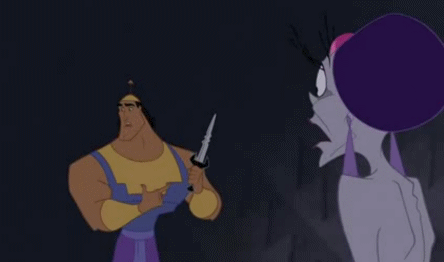
It turns out ADB does tell us a bit later on:
The chlorine reek of them offended his senses, the way it rose in a miasma from their antiseptic-soaked bandages, as if such trivial protections could ward against the changes of the warp.
This is very interesting to me for a few reasons since it can lead to various interpretations about Nostraman culture, even though it's important to bear in mind that what we're seeing is the degraded situation after however-many thousand subjective years of dicking about in the Warp, Eye of Terror etc.
They believe, or at least Ruven the POV character here thinks they believe, that warp mutation can be defended against with purely physical items i.e. bandages and disinfectant. While it's easy to point to examples of people from all kinds of cultures in the setting using spiritual or metaphysical ways to protect themselves from the warp, I find it interesting that this doesn't seem to occur to the Nostramans.
In fact, unless I'm remembering it wrong (always a possibility tbh) other than a small mention in one of the Gendor Skraivok short stories about there being a secret Lectitio Divinitatus cult among the serfs, there seems to be very little spiritual/religious belief organic to Nostramo itself.
That makes some sense, I think. It is after all Space Gotham, a world of armoured groundcars and looming starscrapers where everyone is living under some form or another of very high pressure just to survive whether that means getting their next meal or keeping their position in high level gang politics. Whatever beliefs the original settlers brought with them to the Sunless World were, I imagine, ground away over time as generations passed and people had other, more visceral concerns.
There are a few scenes in the 1984 nuclear war TV movie Threads that take place in the period about 10-20 years after the bombs have fallen. It's clear that the by now rapidly deteriorating survivors of the pre-war world are trying as best they can to provide some kind of education for their post-war descendants, but this is extremely limited and relies on what they can gather together from whatever books, VHS tapes etc happened to survive the war:

"The skeleton of a cat! A cat's skeleton!"
And we can see that it simply means nothing to the children and young adults whose entire existence revolves around basic survival - mostly food and the things they have to do in order to get it.
This, in a way, is what I think happened to whatever beliefs in anything beyond the material that may have ever existed on Nostramo by the time we see it in the Crusade/Heresy era. It's a sad, stunted little world and I feel immensely sorry for the nasty, skeevy people it produced.
Another factor affecting this would of course be the Night Haunter. You don't really need to have a spiritual/metaphorical figure or system dispensing rules and justice when Konrad is actually real and inside your home making it brutally clear what his views on law-breaking are.
So, in my usual roundabout way, we come back to the bandages again. My view, as I've expressed before in my ramblings, is that Konrad didn't truly eradicate crime on Nostramo so much as eradicate the appearance of it.
There's a legend from Ancient Greece about a Spartan boy training to be a warrior which I'll post as a screenshot below since I think we could all do with a break from my writing style for a bit:
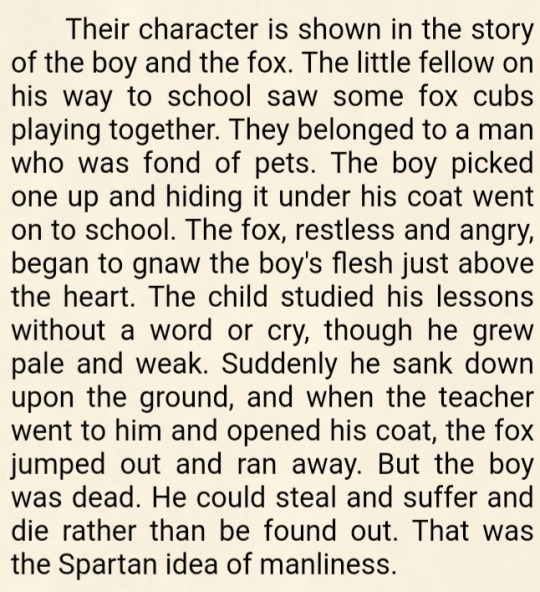
"He could steal and suffer and die rather than be found out" is the relevant part here I think. Much like the idea that snitches get stitches or the mafia code of omertà where one's value in society and life itself hinge on a mutual keeping of silence against any and all authority figures.
We know that even before Konrad arrived, Nostraman society functioned on a gang allegiance basis, so already fertile ground for a very insular and secretive type of culture. But then we add the Night Haunter to the mix and the numbers spell disaster for you at Sacrifice the social pressure in this direction ramps up massively.
It's also made very clear pretty much everywhere that Nostramo is a vicious, predatory society. There's a description in one of the Skraivok stories of Phy Orlon, the canonical smallest saddest uwu-iest Night Lord:
It astounded Skraivok how such a vulpine little thing had made it through the selection process. Even bulked by legionary gifts, Orlon still managed to convey the impression of feebleness. Towards the end, Nostramo had been providing only the dregs of the dregs. No wonder Curze had levelled the place.
Weakness was like the scent of blood in the water to the Night Lords. Legionaries like Orlon would always attach themselves to those they deemed powerful, for protection. That explained the ridiculous batwings welded to the top of his helm in emulation of Sevatar, and why he had appointed himself as Skraivok’s adjutant.
It's like prison or high school. Even the transhuman supersoldier Nostramans still function this way. What hope do ordinary people have?
Not much at all, I think. Just in order to survive day to day it'd be necessary to conceal any injury, weakness or deformity at the risk of having it being ruthlessly used against you by just about everyone.
So we come back to the bandages again. Told you I'd get there eventually. We see that the attendants are in fact completely covered in bandages Joshua Graham style:
‘Lord,’ they hissed through slits in their faces that were once lips. Their bloodstained bandages rustled as they shifted and lowered their weapons.
[...]
She raised a bandaged hand, as if she could possibly bar the warrior’s passage with a demand, let alone with her physical presence.
I can imagine the impulse to cover up and conceal any weakness applies very strongly to warp mutations of any sort. Curdled and degraded over millennia roaming the immaterium in the bowels of a ship with the changes becoming worse and worse the longer they go on, it would be plausible for this to develop into a need to cover up and disinfect every inch of oneself in order to maintain some pretence, however flimsy, of being a capable human being.
The saddest part of it for me, though, is that all of the attendants are like this. It's a situation where everyone is quite literally in the same boat, undergoing the same suffering, and yet they still retain this deeply-ingrained need to hide and conceal themselves from each other. It feels like even here, ten thousand years after its destruction, Nostramo's poison is still influencing them, still flowing through their veins to keep them separated, afraid, and deeply alone.
Oh wow, a few paragraphs from ADB somehow led to a great long wall of text. Congratulations if you've made it this far!
PS: This being ADB I feel obliged to consider the possibility of Ruven either lying or being mistaken. I don't think this is likely since he is a) also Nostraman and b) a sorcerer meaning that if there was any spiritual aspect going on he would more than likely have the requisite cultural/magical knowledge or experience to be aware of it or otherwise detect it. Ruven is a conniving goth thot but he has no reason to lie in that particular bit of his own thoughts.
#night lords#lore#nostraman culture#lore post#wh40k#warhammer 40000#warhammer 40k#horus heresy#nostramo#warhammer lore#in this house we respect Hound who deserved far better than what he got#nightlordposting#is this domestic lore? i feel like it is#domestic lore#this will be the 327th post in which i have mentioned Threads (1984) and i have become exceedingly good at it#neves loreposts
49 notes
·
View notes
Text
I think one thing I will say about the finale was that the most problematic aspect of the concept of the show was how it feels like they had to use the Fionna and Cake plot to Trojan horse a resolution to a swathe of loose ends Simon and Betty's arcs had. They pulled it off even better than I ever wanted to let myself hope for for the most part but I would say my main issue if anything was how cramped the finale felt when I think they could have left a lot more up to season 2 speculations (especially with the resolutions for the alt universes, they didn't really feel necessary when they basically just had to egg Scarab).
I feel I liked the understated melancholies of seeing Simon recontextualized and kinda infantilized in that temporary form hosting his mind, and some people have said the Casper and Nova thing felt hamfisted but I thought the vibes were too cute to care that it wasn't particularly "efficient" as far as metaphors go, but that does slow down the pace which probably crunched the ending a little harder :'). But it also worked in further showing the sad side-effect of the crown on Simon's relationships, including that of stunting his ability to have ever matured in his understandings of love and his relationship with Betty. I also think their last scene in the memory worked because it was Simon reconsidering how he viewed their relationship for the first time, even if his attempt to do for Betty what she did for him would have just been an inversion of their original flaw, the scene rests on them understanding it's unchangeable anyway, so that decision doesn't matter so much and it's not something for Simon to dwell on.
I also feel I liked the scene a lot in spite of how scarce it felt in the finale was because of what was most conspicuously unaddressed, which was just the sheer logistical impossibility of any different choices they made having possibly been any "better." It sticks out because Betty says they could have made better choices, which kinda seems to situate their relationship in a vacuum as if there wasn't a very high likelihood had they done anything different at that crossroads, they would have just been literally nuked into orbit regardless. Sure, it seems like enough time had passed for them to have worked out their relationship better at least and then died, but that kinda seems better by an arbitrarily less tragic amount, and really it seems the least tragic possibilities ever were either that they conceive their relationship more healthily, Simon finds the crown and protects Betty from exploding somehow and also doesn't warp her to the future, and they live some terrible survival life but at least they get a chance to live something kinda fulfilling and Betty probably would have taken care of Ice King decently for the remainder of her life once Simon was gone while also having a better understanding of what had happened to him. The only other hand would be that she also was still warped to the future he finds the crown but Simon had not enabled her self-sacrificial tendencies and so she becomes less undividedly obsessed with saving him and instead integrates into Ooo more properly and also accepts what had become of him (I find it hard to think she would have just let him die either way though lmao).
That all said, they had been around a long time to have reflected over everything. I think it is a bit of an issue that they don't really allude to that, but I find it easy to believe that they did recognize how thwarted a happy ending would ever be for them by all angles of their reality, yet they still had that tender ache of that simple and small tragedy just between them two that still exists within the torrent of catastrophe that engulfed them and the breadth of their fate. So much horror in their lives but they reconnect and find themselves primarily concerned with that last regret of not having been able to make the ideal relationship they quite thought they had.
#fionna and cake spoilers#Besides that I would say my other kinda issue with the best part of the finale was that you also don't get to see much more#of how Simon enables Betty besides the elaboration on what Betty alludes to in Temple of Mars#Like they only show the red flags at the start of their relationship but I feel they could have taken some time out of the Scarab fight#to have pretty much just one more scene of his lack of awareness in their relationship after they got together#Because we literally only see him make a misstep right at the inception and that Casper and Nova imply this was a continuous pattern#But Simon has literally no autonomy over himself or Betty for like 95% of the original Adventure Time#and tries to stop her from saving him the first time she shows up#Granted I suppose he saw it as being for his own good should he die and leave Betty alone in some alien world#But that whole situation was profoundly different and difficult to have controlled#save for Simon having not opened that portal at all but the considerations and assumptions of how that might have affected her#a thousand years ago... seems difficult to forsee mid-rigor mortis#So it just sorta feels like Casper and Nova kinda was just pointing to something we didn't actually get to see that much of#And though Simon failing to consider that it wasn't great Betty threw out her plans to do Simon's thing like it was nothing#and then overlooking that more directly and with initiative a second time even with Babette yelling at him was a strong enough prelude#for you to “get the idea” but like. Damn! I wanna see a little of the idea maybe
12 notes
·
View notes
Text
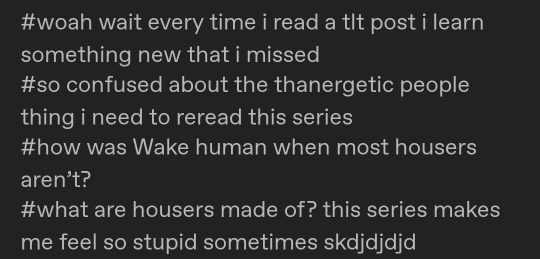
So humanity is precipitously existing on the brink of climate armageddon and the trillionaires put a bunch of people on a fleet of spaceships and fly off. We assume at least some of these people successfully emerged from FTL, found some habitable planets, and continued human civilisation in one form or another, having kids, etc for thousands of years. And Wake is a descendant of that civilisation of regular humans.
Meanwhile, back in the solar system, John murders every human being and every planet in the solar system. They are dead. And then he brings them all back, in his own terrifyingly warped way. The planets become thanergetic: where once their souls generated life energy, thalergy, like all living planets do, they are now empty dead husks, their murdered spirits seeking revenge as Resurrection Beasts, generating thanergy. These planets are death radiation zombies. Then John brings back the people, or at least, he brings back some of them, and he makes them different. All of them have the possibility developing the ability to harness that thanergy that radiates from their dead planets and some chunk of the population in every generation are able to sense and manipulate that energy.
Blood of Eden calls the Housers 'zombies' and it's not entirely incorrect. Imagine the horror of fighting people you know descend from people who died - who died and were resurrected and went on to have children - and now scavenge the energy of death that irradiates their entire dead system. That on the one hand these people have access to terrifying and unfathomable power, but at enormous human cost: necromancers are starved and sickly, and struggle with fertility. And even non-adepts seem to be stunted. The human body is not built for death. 10,000 years of zombies, in their zombie system, sustained by their horrifying god.
Anyway, maybe Wake thought about some of this when she stared at the three month old and yet still horrifuingly swimming vial of sperm from the 10,000 year old eldritch abomination that murdered humanity and has been pursuing a wrathful divine genocide against her people for thousands of years.
tumblr keeps putting posts on my dash about how it’s not “realistic” for Gideon to be fat/buff/fat+buff bc all the Ninth House eats is snow leeks and oatmeal
I’m so sorry, I can’t seem to hear you. I was too busy adding 20 pounds to her, as I do every time I hear this rancid opinion
#John Gaius#awake remembrance of these valiant dead#This is also why necromancy is basically original sin#Nerfing all of humanity because of one person's desire to be like unto god#Meanwhile here comes a woman untouched by that sin about to have god's kid that's won't stay dead
5K notes
·
View notes
Note
it’s crazy to me how as soon as xy realized that hey, this is guy is nice to me? he just got bored and stopped antagonizing xxc. truly just shows how much he is a product of his environment and if even one person would have loved him when he was a child the whole chang clan massacre probably could have been avoided. he is a character so deeply deprived of genuine love and care it is actually insane. when i look at him i see someone is holding on so deeply to a child’s anger that he can’t possibly understand how he could be in the wrong. it’s like, you know when a kid gets mad and they’re like, “it’s MY toy!” or “he hit ME first!” and they don’t think about how actions made in retaliation could also be wrong because they don’t have the emotional capacity to do so yet? neither does xue yang. his trauma stunted his emotional development so genuinely badly because no one was ever there to help him work through it so it just sat and ruminated for years and years and years. and of course by the time the chang massacre rolled around he probably thought murder was like… the normalest thing ever. but as soon as someone was nice to him he was just happy to play house. who needs murder when you have to fix a leaking roof?
this got long again i really do apologise! please find my rambling below the cut.
part of me feels the need to preface this with a “yes i know he’s a bad person i’m not excusing his actions etc etc etc” but we are both rational adults and fans here so like. fuck that tee bee aich. i think you’ve hit the nail pretty much head on—xy is (as are……….basically all the characters in mdzs, to more or less obvious degrees) a product of his environment. yes, he made the choices he made, but that doesn’t change the fact that he was, essentially, given a really big disadvantage at best to start with. like you say—xy’s trauma, and the way people treated and continue to treat him, absolutely stunted his ability to even conceptualise situations as more than a “me versus them” and have in-depth reflections on nuances.
on that note, i want to touch on the finger thing. his own reasoning for the chang massacre is absolutely childish in nature—but also, there’s no other way to say it: it’s entirely possible that, if he was even a hair’s breath less lucky, that injury could have killed him. even when it didn’t, that was an incalculably cruel thing to do to a literal child, just because you can. the only difference between xy and any other child who may have suffered at cca’s hand is that xy grew up to be able to take revenge for it. that’s it. in the framework of mdzs, it’s perfectly acceptable on a social level to kill someone to take revenge for them killing one of yours—it’s life for a life to settle a debt. in xy’s mind, he really does believe a finger, and thus the loss of a potentially entirely different life, is perfectly balanced by the lives of the chang clan. i’m not going to argue whether or not this is “true”—it doesn’t really matter. all that i want to highlight is that he’s not making shit up—he’s taking an existing societal framework and applying his own understanding to it—an understanding that is, necessarily, stunted and warped by his own experiences. (another thing i think that xy forces the audience to face is the question of “how much suffering or pain is enough to be ‘worthy’ before you’re allowed to do something about it?” his society says a life; he says a loss of a potential life. this is a question we could debate until the geese migrate, and come to wildly different answers based on cultural differences.) (and to that point—i wouldn’t say xy thinks murder is normal—instead, i would say that he merely has a different metric for what makes murder “acceptable” than the society around him. no one particularly bats an eye at the wen wwx tortured brutally and, yes, murdered, to take retribution for the jiang massacre, in or out of canon, because this is an “acceptable” situation for murder. but, of course, this is me being pedantic.)
as to your final point—yes. who does need murder when you can fix a leaking roof? isn’t it so much more fulfilling to fix a problem than to bloody a blade? death will just come back to haunt you—family, friends, the government, random fucking cultivators who decide to track you down for your crimes, and so forth. a leaking roof is simple. it doesn’t ask you to consider consequences, or ramifications, or anything more than “where am i going to get a nail” and “where did i put the hammer” and “i hope it doesn’t rain while i’m trying to fix it”. a leaking roof is the sort of simplicity xy, i think, even if he will never admit it, craves—you have a problem, and you fix it, and that’s the end. now you can have dinner without getting wet.
#ask#local fan spends far too much time talking about a minor character more at seven#i hope this doesn’t come off as me disagreeing with you!!!! because i absolutely do agree i just wanted to expand on my own thoughts#on the topic#c.txt#yi city anon
0 notes
Text
I Dislike the Miraculous AU: Scarlet Lady. Here’s Why.
As it says on the tin, I strongly, VERY STRONGLY dislike Scarlet Lady. Among other things, the creator’s reasoning as to why Chloe “cannot be redeemed,” makes me want to gag. The singular action that Zoe-oneesama uses as the basis for this decision is based without any regard for the context of the situation; Chloe derailing a train.
Now, to start off, I am not saying that Chloe was right to do that, it was a horrible, MORONIC thing to do, and she should be held accountable for it, but disregarding the circumstances as to WHY she did it is something I cannot stand. During that episode when she did that, her mother, a woman so vile and arrogant that she either cannot be bothered to remember Chloe’s name or is deliberately getting it wrong to mock and belittle her, publicly, and loudly, for all the world to hear, on LIVE TV belittled and humiliated her daughter and essentially called her worthless in every way other than who she had the luck to be related to. Considering that all of this heavily implies that Chloe is deeply emotionally damaged and socially stunted, her doing something stupid in a rabid bid for her mother’s approval, something not uncommon for people dealing with emotional neglect and abuse and absentee parents as I’ve been told, is something to be expected, not some Moral Event Horizon that says she can and always will be a bad guy who can never do good for any reason.
If Chloe had decided to do that “just because,” that would be a different story, but it isn’t. And considering that there have been, and are, comic book heroes who were once villains who did far worse things, saying that it makes Chloe, a teenage girl who by all accounts has no concept of consequences and is deeply damaged besides, somehow incapable of redemption or being a hero is stupid in the extreme.
Now, I’m going to tackle some of the most common arguments I’ve heard to defend the comic, starting with the take that Chloe is replacing Ladybug and therefore never got a chance to look up to her or have a reason to want to change for the better. First off, just because Chloe doesn’t have Ladybug to act as a role-model, doesn’t mean she’d be incapable of change, or that she would just keep getting worse and worse as a person. Chloe has depths to her that extend beyond just being a bratty mean girl, and her getting the attention she craves isn’t going to magically erase those things. Would having people praise her name and call her a hero give her a swelled head? Yes, yes it would. But, at worst, it would make her egotistical (well, MORE egotistical) it wouldn’t make her entitled to it anymore than she already was, and her ego is fragile as hell, so having people around to constantly pop her bubble (Chat Noir and Tikki) would wear her down and keep her from getting worse, nor is she forward thinking enough to try and deliberately cause Akumatizations.
Chloe, as hard as it may be to believe, genuinely cares about Sabrina and Ms. Bustier, who are essentially the only two people in existence who give a damn about her for real, so things getting worse between Sabrina and Chloe makes no sense. Sabrina is an active and very willing participant in Chloe’s schemes and does her homework of her own volition, and the fact that she genuinely cares about Chloe is a very real truth. Is Sabrina desperate for friends and companionship? Yes, yes she is. She’s also loyal to the point of fanaticism and understands Chloe on a level that literally NOBODY else in the world does. A wedge being driven between her and Chloe doesn’t work because Chloe typically treats Sabrina very well, considering the warped and unhealthy nature of their dynamic and mutual enabling of each other’s problems.
Adrien being attracted to Marinette and splitting away from Chloe ALSO makes no sense. First off, there has never, NOT EVEN ONCE, in the entire series been any kind of hint that Adrien is in anyway attracted to Marinette in any capacity. Would he like her as a friend and enjoy her company? Yes, yes he would! But he also has an actual best friend who he spends the lion’s share of his time with, when he has free time at all: Nino. By all accounts, Adrien’s type of girl is someone a lot more dynamic than Marinette is, if his obsessive crush on Ladybug in canon and brief, self-sabotaged relationship with Kagami are anything to go buy, so he would have no reason to see Marinette in a romantic light, especially as she still can’t spit it out. Him parting ways from Chloe makes no sense because he cares about her; by all logical rights, there should be no reason for him to split off from Chloe because, in public at least, she’s not even remotely acting different from her canon self, and he’s barely bothered by that. If anything, him being aggravated by Scar’s antics means he should be taking a bigger role in Chloe’s life and trying to get through to her, NOT just splitting off from her because “reasons.”
And then there’s Lila. I will be honest, I am a fan of Redemptions. A good one makes me feel warm inside and stokes my faith in humanity and sapient life in general. Lila’s “redemption” in Scarlet Lady PISSES ME OFF. Why, you may ask? Because it Woobie-fies her. I have no problem with Woobies. They serve their place in works of fiction and series. But Woobiefying a character like Lila PISSES ME OFF. Lila’s only claim to being sympathetic is a brief scene in a singular episode that has her sad after a call from her mom; that is it, nothing more. Lila is, by all accounts, a high-functioning sociopath; she doesn’t give a damn who she hurts or who ends up threatened by her actions, and if someone causes her trouble, she will try and DESTROY THEM.
Scarlet Lady making it so that Marinette, who is the physical embodiment of everything Lila finds pitiable and pathetic about people, is somehow able to “get through to her” makes no fucking sense. Lila shouldn’t be listening to Marinette; she should be pretending to listen to her so she can exploit the girl’s kindness and build up a power-base. Lila was perfectly willing to KILL Marinette and Ladybug in canon over something comparatively petty, and gleefully worked with a psychotic terrorist in the hopes of causing trouble and ruining lives. Scar dumping her in a pond should drive her to HOMICIDAL RAGE above all else, and be working even HARDER to kill and/or ruin Scarlet than she tried to in canon, because THAT is the type of person Lila is.
I have more, but if I keep talking about this fic, I think I’ll have an apoplexy. All in all... I hate the fic. I hate it a LOT. It basically involves reducing Chloe into the shallowest possible interpretation of herself, and acting as if making her into some kind of ultimate Hate Sink is something impressive fundamentally rubs me the wrong way. But that’s my own issues above all else. If anyone has any thoughts or opinions on this, feel free to share them. I’m willing to listen, even if I may not agree.
68 notes
·
View notes
Text
look away if you're not a reality dating show dirtbag like me ����
There's this show on Netflix called "Perfect Match" where they bring in all these people from the extended Netflix universe to live in a house and date and to stay in the house you have to be matched with somebody. Contestants can win compatibility challenges to earn the right to bring in new people, and choose who that new person will go on a special date with, usually hoping the new person will break up an existing couple. If you're not matched with anyone at the end of an episode, you're eliminated.
So I can see Gale as a stunt casting move. Someone drops out at the last minute so producers grab this seemingly sweet guy from like a chill baking show. Maybe he has to go because it's part of his Netflix contract and he and production are both hoping he will be eliminated during the first episode.
Evie would be fresh off of some frothy Too Hot to Handle type of show. She would take one look at Gale and know that he would get absolutely eaten alive by the Perfect Match environment so on the first night she offers a strategic/friendly match since no one is really talking to him during the mixers where most of these decisions are made.
But then the first elimination night comes and they stay matched. Ah it's only the first elimination, who cares? They weren't even sent on dates to be tempted by the new people so it makes sense to just stay together another week. And yeah the matched couples sleep in the same bed but it's a big bed, it's fine.
Did I mention the couples who win challenges also get to go on special dates together? And like, yeah whatever, Evie and Gale keep winning the compatibility challenges. And they got to go on a beach picnic which was sort of fun. And they got sent on a date that was essentially "smear paint over each other's bodies in bathing suits" and they thought it would be funny to really lean into it for the cameras and maybe got a little genuinely turned on but like - it's for TV, okay???
There's a real challenge on Perfect Match where all the contestants have to kiss each other blindfolded and rank how good the kiss was. And when they reveal the ranks, you see that most people were sort of reserved about the challenge so they don't rank anyone above a 7 but Evie is humiliated because SHE gave out a 10 and to GALE (of course Gale also gave her a 10 which she doesn't want to talk about either).
Can you imagine Evie losing her mind at warp speed because Gale got selected for a date with a new person? She'll spend the entire day convincing herself that Gale is a lost cause, this person will be his soulmate, and she needs to flirt with someone else so they will match with her and keep her in the house. But this flirting feels so hollow now because she has genuine feelings for this freaking nerd who was supposed to be gone on day one!!
ANYWAY, I think Evie would make a legendary reality TV villain who everyone hates until like 3/4 of the way through when she tells off a contestant who is actually disgusting, gets a good edit for the rest of the season, and then online fans spend the following years making posts like "here's why Evie (Season 3) was actually the most mature contestant."
I'm at "placing my otp into every piece of media I consume" level of rot
#as amazing as karlach would be as a contestant i also feel like she's the only one with enough energy and enthusiasm to host#although they did once let a past host on the show#which like#yeah go ahead#gale x evie#m: writing
21 notes
·
View notes
Note
happy blorbo blursday, rune! for any unemployed oc, what’s their dream job? sending good ~~ vibes ~~ for a decent day. :3 - 🔮⛈
hello and how are you?
Happy Belated Blorbo Blursday, turned Storyteller Saturday, lovely Enchant! This is actually a very cool question, ngl. ^-^
We do have a lot of "unemployed" OCs within The Plague Begins With Me, so let's focus there! We will go through Patients Zero through Nine, that went through the origins of the Burning Plague!
Zero's only wish, especially when she was younger, was to be a caretaker. She wanted to help people, and give them just a little bit of happiness and peace in their lives. This little dream was warped and twisted though, in her Reality.
One's dream job was to be a traveler. Being from a life of rigid rules and strict deadlines, he wanted to be free and in control of himself.
Two has always wanted to be an adventure seeker! She was a child of weakness and fragility, and would watch videos of people doing dare devil stunts and sparking their lives with adventure and intrigue. If she could have done anything, it would have been that.
Three, Four, and Five had wanted to own a botany shop together. Three adored flowers, Four would handle the more exotic children, and Five was definitely the organization and brains behind things. They had that dream, once they were done with the trials the Scientists used to assure them were nonlethal. They would get paid, build their shop, and enjoy their lives entangled within one another.
Six simply wanted the dream job of being able to exist. She wanted to know that the Worlds, even with all of their ruthless despair, could hold a small bubble of peace and calm for her. Seven used to promise her that too. He would be the one to give her that desire. He would always tell her how he would find them a home, just for the two of them, and would always whisper how he would make sure that she would never have to force herself again, once the trials ended.
Eight wanted to do something that would change the World. Her dream job aligned a lot with Zero and they became friends before the trials. They entered together, both with the dream to do something for people. And then she met Nine.
Nine's dream job was just something that would let her live her life without having to struggle through every single day. She didn't really care about the realities of her life, she just wanted that stability in order to thrive, instead of just survive. Once she met Eight though, her dream job shifted into whatever would bring her eternity intertwined with her new treasure.
#blorbo blursday#storyteller saturday#Runes of Knowledge#answered asks#dream jobs#patients zero through nine#plague.b.me#character chatter#thanks for the ask!#sorry for the hold!#discuss.with.us
2 notes
·
View notes
Note
What did you think about Rize’s journey from Tokyo Ghoul?
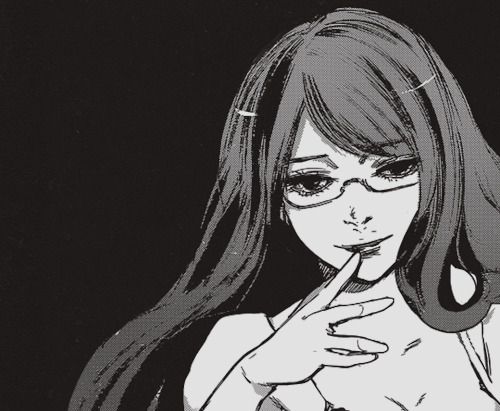
She doesn’t really have one? Rize is a character who doesn’t change from start to finish, and she’s never really written from her own perspective. She never really gets to be the protagonist of her own tragedy, or have her circumstances explored, she dies at the end a sacrifice to Kaneki’s story. There is a personality in Rize buried deep down. You can see her as yet another of the broken children produced by the garden each of them unfixable in their own little ways. She parallels characters like Furuta, Arima, and Hairu.
The common thread she has with all three of them is that each of them are trying to cope with a trauma that really can’t be coped with. There was no good or healthy way to adjust to the trauma of the garden. Instead of coping, Hairu, Furuta and Arima just don’t.
The amount of trauma from the garden would break them if they ever truly tried to process it all. They just can’t. A child should never be expected to cope with those circumstances. The result is all of the garden kids are permanently warped and violent in their dysfunction. They are in a state of permanent lashing out.
This is something everybody from the garden does. To run away from their tragedy they indulge themselves in violence. Hairu lives for the sake of getting praised, so she slaughters ghouls en masse. She pretends she is loved by Arima and that her life has a purpose in killing ghouls rather than face the reality she is a child soldider to be used and disposed of.
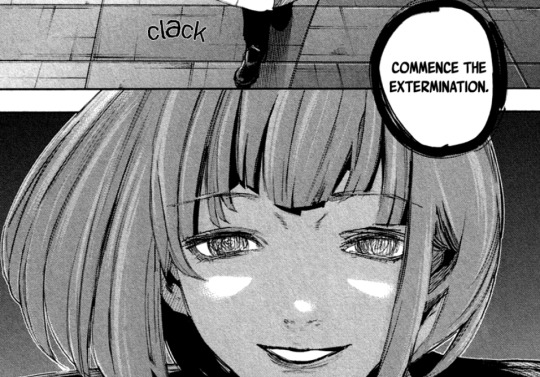
The thought of getting a chance to exterminate everything brings a smile to Hairu’s face. It’s tragic that she thinks this is the only way she can ever truly be loved, but it’s also a learned sociopathy. She doesn’t care about the lives of others.
Almost every garden child does this. They trample over the lives of others recklessly, because they know their own lives do not have any value. Even Arima who wants to value life and thinks that murder is an absolute evil, still... murders a whole bunch of people because he doesn’t see any alternative to himself.
The crux of the garden children is that they all become what they were raised to function as a little too well. Furuta is far better at being the heir to the Washuu household than Matsuri, and runs the CCG way better than any of the previous Washuu did and ramps up the killing, and the iron fisted control because those are the circumstances he grew up under his whole life. Arima was raised as a tool, so everything he does he acts like he’s merely a passive, helpess tool who can only obey orders. Even in his rebellion he just changes who’s orders he’s obeying and becomes Eto’s tool instead. Hairu was raised to believe she had to kill in order to survive, and receive any kind of love and security, so she does that.
We finally reach Rize. Rize is not a person. Rize has like, personality traits, and ideas that float around her, however they never really connect into a whole person. Rize was meant to be a womb to carry children and nothing else, and when she escaped she just became a ghoul that eats in order to live. On the inside of the garden, and on the outside of the garden, Rize was never a person so as a result she embraces her ghoulness as a substitute to any real identity. The same way Arima is a tool, Hairu is a child soldier, Furuta is a Washuu, Rize embraces her role as a monster.
She is who she is in rebellion of who she was raised to be. She is also permanently broken because of who she was raised to be. These ideas exist in a crazy tension within her character that Rize never really reconciled which made her act even more inconsistently.
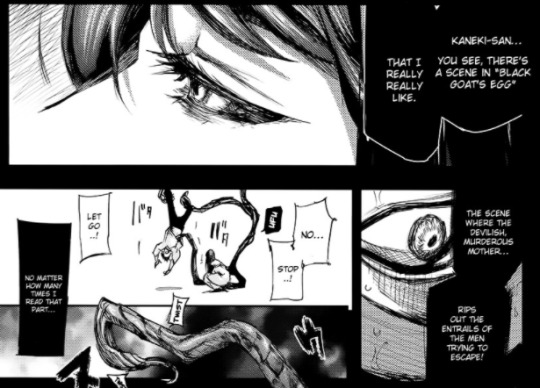
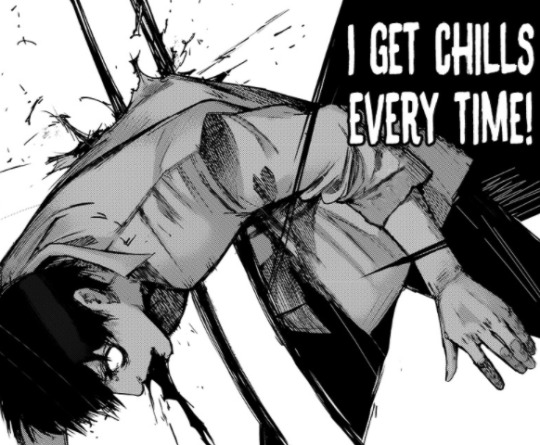
You could even make it a foiling point between Rize and Kaneki. They both relate to the story of the black Goat, whereas Kaneki is the protagonist terrified of inheriting the violent instincts of his mother, Rize sees herself as the Black Goat. It’s just easier for her to be a remorseless murderer, because she doesn’t ever have to see herself as a victim that way.
Rize rejects everything. Both her victimhood and her personhood. She just doesn’t want to deal when she can keep running away.
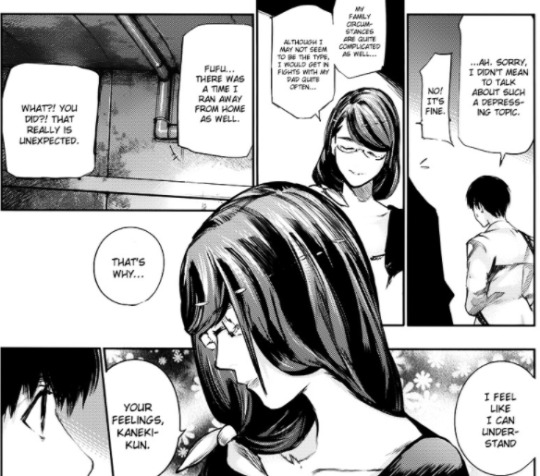
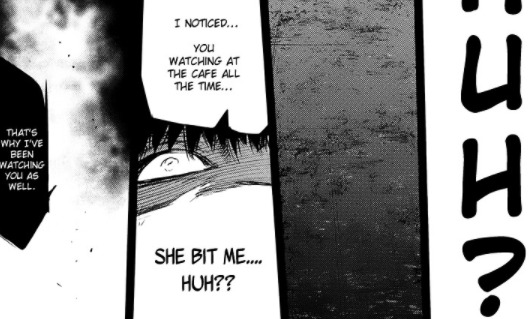
Nobody around Rize really views her as a person, but Rize is actually more comfortable this way. She even plays it up a little bit. She’s observant enough to notice the expectations of others and plays to those in order to manipulate them. Rize knew that Kaneki was looking for a girl who understood him, so she pretended like they had so much in common and that she was intrigued in him.
I’d say this behavior is much more than simple revenge against people’s expectations and perceptions of hers. I’d say that Rize by playing up this femme fatalle image denies her own personhood. Everything about her is a performance in order to lure people into her traps and eat them, therefore there’s no real Rize. There’s no girl. There’s only a spider trying to lure in flies. Rize cannot see herself as a person because that involves dealing with a lot of trauma so she just doesn’t.
Rize doesn’t change over the course of the story, because she can’t change. Not really. She’s too busy running away from herself, and her past. However, we do at least see different perspectives of her filtered through several different people. The first one is obviously the shallow ones that Kaneki perceives as her. He sees her as a mother figure, incredibly interested in his development and journey as a ghoul, a symbol of his own strength. Kaneki’s perceptions of Rize are twofold, one that she’s some untouchable goddess and symbol of strength, and two that she’s really, really interested in his development.
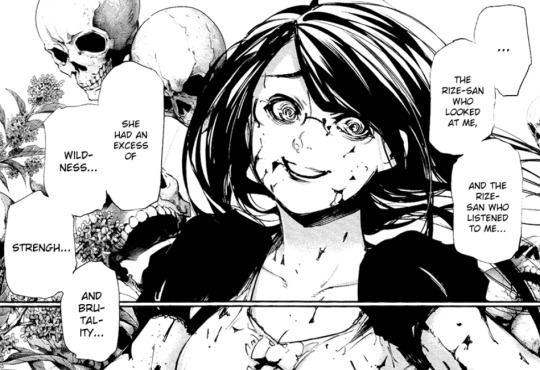
Banjou sees her as a free spirit, because Banjou himself is someone who has little control over her own life. He focuses on her fickleness and indecisiveness and the fact that she doesn’t care about others feelings at all as something to be admired because it’s total freedom that he can never have due to the fact that he is so weak and constantly living with his head down.

However, none of those traits Rize has are good ones. She’s just a selfish little child coping poorly. There are reasons for her selfishness yes, and it’s sort of impossible to survive the garden without being seriously stunted as I elaborated above but that doesn’t change the fact that there’s no freedom in what Rize’s doing. She’s just lashing out wildly. She is as caught in the cycle of violence as everybody else.
Renji sees her as a pure victim, and she’s reduced to this state by Kanou. Agencyless, and starving. Rize also becomes her most childish when perceived this way. She begs for her father to come save her, and is terrified of the dark.
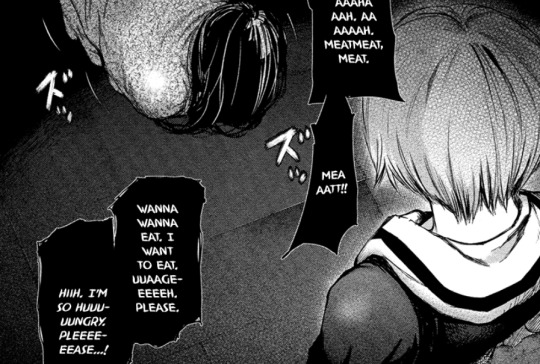
Furuta is someone who knew Rize before the trauma set in. Not only does he know exactly what happened to Rize, but also he’s the closest to knowing the child she used to be. That is also the problem however. Rize and Furuta suffer from the exact same trauma, and they both spend their lives avoiding their trauma.
Literally no matter what, neither of them were ever going to be able to face each other as people. They both remind the other too strongly of the worst period of their lives.
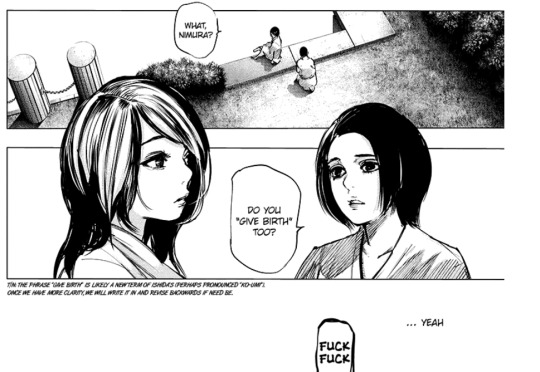
Furuta murders Rize, because she reminds him of the youngest and most vulnerable time in his life. Rize is also a mass murderer who kills people in order to avoid feeling her trauma because she would rather feel like a powerful ghoul than a vulnerable little girl. Furuta’s actions are inexcusable. Rize’s actions are inexcusable. Both are informed by trauma. It’s not even gray really, it’s black, on black.
Furuta can’t recall a perfect image of Rize from his childhood, because she represents everything good about the kid he used to be, and also everything terrible about the environment he grew up in. It’s likely the same for Rize as well. She can’t face Furuta because that means facing the garden. No she doesn’t owe Furuta anything for saving her. What I mean is, Rize can’t like. Remember. Any of her memories from the garden. Good or bad. It’s not just Furuta, Rize also can’t have friends, or positive relationships in general. The two people who have helped Rize in some way in life, Furuta who freed her, and Shachi who raised her as a father she basically doesn’t care about either of them. Because she is too busy running away from all of them. That’s why I say Rize is unfixable, even when people show her love, or selflessness she’s just incapable of receiving it. Rize associates Furuta with the garden. Furuta associates Rize with the garden. Rize’s spent her whole life trying to run away from the garden, so she just feels nothing about Furuta either way. Furuta has spent his whole life trying to destroy both the garden and himself, so he desotrys Rize. It’s kind of impossible not too because they were both raised so close in such equally horrible circumstances.
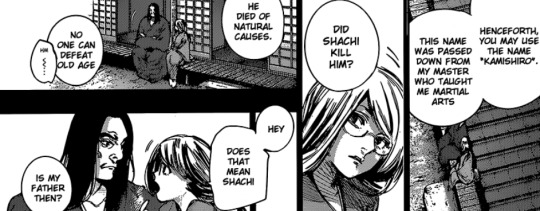
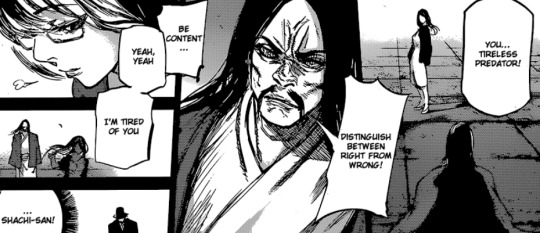
Shachi sees Rize as a daughter figure but once again, Rize played the role of daughter for awhile and then got bored of it and left. It’s impossible for Rize to feel truly content, or even accept love because she’s always presenting a fake version of herself to avoid any and all actual emotional vulnerability. Rize basically sees herself in every interaction as a monster pretending to be human, and she does her very best to keep acting that way, but because of that she can never know closeness, and is always disatisfied. She’s incapable of relating to anyone. And this is once again, a foiling thing with Furuta. They are two people who are both constantly wearing masks and pretending to be monsters because they can never return to being the vulnerable children they once were.
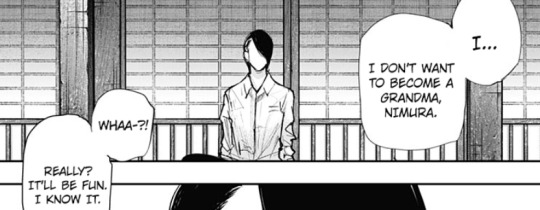
Furuta’s last memory of Rize is when they’re both children again, and the firendship between them was genuine. While yes Furuta projects a lot on Rize, there’s also something genuine about his reassurance to her here.

What they both wanted was to be able to grow up and get older. However, growing up for Rize meant horrible things would be done to her by the Washuu. Growing up for Furuta meant he would become just like the Washuu that hurt Rize.
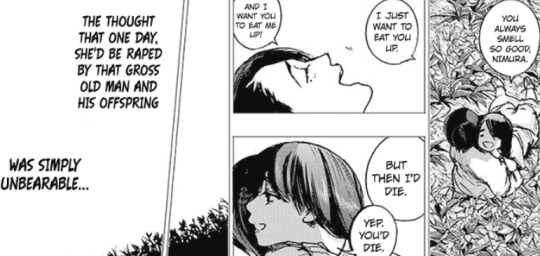
Neither of them ever had a future to begin with. Neither of them were ever going to grow up. The tragedy of the manga belongs to Furuta and Rize because they were both children born in this world only to die. Rize never grows up, not really, but also she wasn’t ever meant to grow up.
154 notes
·
View notes
Text
can we talk about the fact that luther probably never had a friend or any kind of human connection with anyone outside his family until he landed in the 1960s? he experienced complete isolation on the moon, but he was so isolated before that too.
diego, allison, klaus, and vanya all have lives outside of being a hargreeves and have other people as a presence in their lives. even five had experience of proper interaction with other people during his time with the commission and with simulated interaction with delores. but did luther ever have regular and/or meaningful interaction with anyone outside the family?
I doubt they were allowed to play with or meet other kids. they didn’t go to school. during media stuff, I can’t see there being much in the way of social time or the chance to interact with other people as equals. it’s only when they grew up and moved away that they get the chance for that socialisation and interaction, but luther never left.
as much as I don’t like the idea of allison and luther together, his interest does make a kind of sense. assuming he either is or believes he should be attracted to women, the only choices in his life there are allison, grace, and vanya. of course he knows other women exist, but they exist in a very abstract sense and not as people he has any real and regular contact with. add to that a complete lack of examples of how relationships should work or feel, it isn’t surprising that he might have issues in that department. they’re also definitely bonded over their shared trauma after having experienced similar abusive and scarring childhoods, and it makes sense that the lines and boundaries of interpersonal relationships would be confusing and blurred.
and it makes sense that allison would be able to move on easier. while she had a similar situation and similar isolation-based warping growing up, she did leave. she did meet and interact with other people, and did get that chance for comparison and contextualisation. luther never got that.
anyway this is a very long post to say luther is socially INCREDIBLY stunted and I want to see more exploration and discussion of the consequences
52 notes
·
View notes
Note
Cloud had every opportunity to validate his relationship between he and Tifa. He doesn’t tell aerith who he gave the flower to and when aerith asks if tifa is his girlfriend he’s quick to say no and when she says “she’s something special, right?” And he says “it’s not like that” that doesn’t sound like someone who’s in love... yet when Tifa questions the relationship he has with aerith, he can’t even answer... As a cloti fan I don’t think I can shobghis anymore... 😔
Ok, let’s breakdown how Cloud’s behaviour works again.
Not that some people understand that having mental illness and crafting a false persona to protect their own psyche means they do things that are contradictory to their own true feelings at times. They seem to think SOLDIER Cloud is another way of saying “He’S jUsT zAcK”. Which isn’t that at all and they need to stop purposely misunderstanding the point.
SPOILERS FOR CLOUD’S ENTIRE BACKSTORY.
Cloud: introverted, socially awkward, no father figure, low self-esteem, lives in a very small town with little culture and few kids his age. Of those kids, the majority don’t like him because they’re assholes (yeah I said it).
Tifa: childhood friend and crush, who isn’t an asshole to him because she’s a literal fucking sweetheart (don’t even try and @ me). Shy, reserved, polite, kind, also can be reckless af.
Age 8, Tifa’s mother dies and she gets it into her head that she can go visit her at the top of mt Nibel because that’s where she gets the impression the lifestream touches the planet.
Cloud (9), follows her and her friends up the mountain and stays with her as they chicken out. He and Tifa have an accident, which results in Tifa being unconscious for 7 days. During that time she’s unconscious (but yknow some ppl say she should’ve still cleared up the misunderstanding WHILE UNCONSCIOUS, despite never learning of it even after she woke up), her friends throw Cloud under the bus to her father as the reason why she went there. Tifa’s father puts all the blame for it on him (douchebag move, but he’s an upset parent who’s just lost his wife and now doesn’t know if his daughter will live or die. I’m not excusing him, but he’s got reasons other than “let’s victimise Cloud”.) Tifa’s father tells Cloud that if he isn’t capable of protecting her then he should keep his distance.
Cloud resolves to become stronger and thanks to Stamp propaganda and Sephiroth hero worship he decides to become a SOLDIER.
Tifa never says anything about this being what she wants. She likes Cloud just as he is.
Skip forward a few years and Cloud’s 14, has kept his word not to hang out with Tifa, not that it stops her wanting his attention.
The promise scene occurs, where Cloud tries to get Tifa to admit she likes him and Tifa gets Cloud to promise to return to town just once so she can see him again (because these idiots have no idea they mutually like each other in a romantic sense).
Skip forward another 2 years.
Cloud (16) isn’t a SOLDIER, but he’s got to go to Nibelheim with Zack and Sephiroth. He hides from Tifa, ashamed that he isn’t the man he promised he’d become.
Tifa (15) who’s massively disappointed Cloud wasn’t with them, ends up seriously injured by Sephiroth after he loses his marbles.
Cloud appears and saves her, killing Sephiroth.
Zangan takes Tifa away from Nibelheim - and good thing too or she’d have ended up a test subject with the others.
Cloud and Zack are stuffed in chambers to be experimented on.
4 years go by and Zack saves Cloud who’s suffering mako poisoning. They make it to Midgar, which takes around a year, where Zack then dies, leaving his sword to Cloud.
Cloud still suffering from mako poisoning and now also with PTSD and all his other previous issues, shambles into Midgar where Tifa finds him.
Here’s the bit people like to misunderstand.
Cloud is infected with Jenova cells, which warp his perception and make him susceptible to Sephiroth’s control. (This is proven by a moment at the end of the game where Cloud’s hand twitches in response to Sephiroth asking for his help)
Zack told Cloud a lot of stories, both before he was poisoned and after. These combined with Jenova’s mind warping, the mako poisoning itself and Cloud’s own severe trauma allowed him to craft a false persona for himself, which he needed to protect his real psyche from a further mental breakdown.
Cloud is a mentally ill protagonist.
Cloud uses the SOLDIER persona he’s crafted as a shield to function in daily life. He’s unaware of what he’s done. He believes SOLDIER!Cloud is the only psyche. We get to see real!Cloud on screen at the beginning of Chapter 8 asking SOLDIER!Cloud if he’s ok. Real!Cloud specifically refers to the childhood event on mt Nibel with Tifa where he “got away with scraped knees”. SOLDIER!Cloud doesn’t know what he’s talking about because it’s a real!Cloud memory and not one he’s privy to. Any time SOLDIER!Cloud tries reconnecting to his true self he ends up in pain. He’s not ready to be whole yet.
Behind the shield is an emotionally stunted, very ill man who spent four years as a lab rat, suffered countless traumas, witnessed his home burned and saw the girl he loved stabbed. The real Cloud is a weak, flawed human being who isn’t in a good enough head space to function, let alone do all the things that’s needed of him during events in the game.
Cloud doesn’t think he’s Zack. The only time that argument can even be used is in a 23 year old game that has clear script problems all over the place. That information is outdated and been debunked several times over.
~*~*~*~*~*~*~*~*~*~*~
Now, onto the points you raised.
Cloud cannot connect his real persona and the feelings he has for Tifa with this false persona he has. The SOLDIER persona acts as both a shield and a wall preventing things from affecting the real!Cloud behind it. Nothing gets in or out. That’s why Cloud can’t articulate his feelings for Tifa. It’s not because he doesn’t feel anything for her, it’s because he can’t connect to those feelings until after he’s reunited the fractured parts of his psyche -- which only happens because of Tifa during the lifestream sequence. It’s then he’s able to get back in touch with those feelings and express them. It’s not because they don’t exist. He never, at any point, in 7R says he doesn’t have feelings for Tifa. He says she’s not his girlfriend - fact, she isn’t. He says in response to Aerith asking “she’s someone special” that “it’s not like that” but then gets cut off, like every other point in the game where he’s about to try and explain his feelings. He doesn’t know how he feels because those feelings belong to real!Cloud and not SOLDIER!Cloud. We get a clear view of how Real!Cloud feels about Tifa during the plate fall. At several points, the urge to comfort Tifa is seen. That’s not SOLDIER!Cloud’s urge, it’s real!Cloud’s. When he sees her crying during Jessie’s cut scene, when he sees her on her knees at the top of the plate, when his hand twitches as Barret hugs her. All of these are canon non-optional moments that build a picture of real!Cloud wanting to express his feelings to Tifa, but not being able to. The resolution is the culmination of those feelings. He takes his time hugging her back because the SOLDIER persona is trying to protect him still, but the real!Cloud breaks through long enough to hug her. And he does so hard because he needs comfort. He’s gone through so much that he’s broken inside. That’s why he hugs her until it hurts. Because he hurts.
His response to Tifa’s question about Aerith isn't shipping. Tifa’s first words when she wakes are an urgent affirmation to get home and save the slum. Cloud agrees. She then asks Cloud how he knows Aerith, after expressing concern she'll get hurt by going with them. Tifa and Cloud are eco terrorists and as far as she knows Aerith is a normal girl. Nobody would want a civilian dragged into danger. And Cloud has been in Midgar for four days and spent most of them with Avalanche and Tifa. She's curious how they're friends because she knows Cloud isn't a people person. Cloud explains Aerith saved him, but when? It's clearer in the JP because the phrasing is that Cloud was in the kind of danger that worries Tifa. She wants to know what kind of danger Cloud would get into that he couldn't handle. Well he's not talking physical danger. He's talking about how Aerith helped him save Tifa. Because that's the kind of dork he is. He's referring to the phrase Aerith said to Sam about making sure Cloud wouldn't have to live without Tifa. That's what he means by her saving his life. Because he can't live without Tifa. So, it's obvious why that's not made a bigger deal of in disc one.
He doesn’t tell Aerith who he gave the flower to because it’s none of her goddamn business. She’s a stranger being nosy. He’s got no obligation to tell her what he did with it. If someone you met twice start sticking their nose in your personal business you’d be cagey too. That’s a meaningless moment that certain people cling to because they’re idiots.
Sorry, this got long. Hope it clears a few things up though. I probably missed a few details here and there.
TLDR: Cloud has mental illness and isn’t capable of love due to a fractured psyche, so can’t answer anyone when they ask.
219 notes
·
View notes
Text
Beyond the Mat, sort of meta?

Ok so for some personal context, I’ve been rewatching all of Supernatural and i have the firm intention to keep the show on repeat on my computer/tv until i’ve fully binged it 15 times (never fear, I am already perfectly aware of how bad a decision this is). I wrote this post with a frantic need to get all the thoughts out, but it happened to be 3am at the time, and I realized I had to make gifs and upload them which was obviously too much work for a sleep deprived brain. I put it off until the next day, but ended up procrastinating and now it's been sitting in my drafts for 3 months and I thought hey this is a good time to finish it up (it could be argued that i'm polishing up this thing at 5am and this doesn't seem to be an issue for my will to get this done this time around, although I am heavily caffeinated so maybe that has something to do with it, go figure).
Anyways that’s besides the point. At the time I had just gotten to 11x15, Beyond the Mat. I’ve seen people write a lot about how parallels between Sam and Dean’s love lives/interests are part of the subtext about Dean’s bisexuality. I’ve also read people's works about how Gunner is pretty obviously one of Dean’s youth celebrity crushes. But (and I might just be a bit blind or haven’t looked hard enough) I haven’t seen a lot about the parallel between Sam/Rio and Dean/Gunner.
So let's get down to business, shall we?
The scene I will be focusing on starts out with Dean utterly star struck, sort of mumbling awkwardly his reasoning for coming up to Gunner (x) (x). Interestingly enough, Sam does the exact same thing with Rio (x) (x), while Dean is in the other corner clasping Gunner's hand for way too long and way too tight, and giving him the “i’ve loved you ever since i met you” look (x) (x).
Now since Sam’s crush is strictly heterosexual and we all know Sam’s interest in women, he outright says it to Rio (this is, after all, the CW) (x) (x). Dean on the other hand doesn’t verbalize it in so many words (the CW), but cmon... That fluster when Gunner winks at him later on?? (x) (let's not forget the little leg pat (x) that is probably still etched in Dean's memory amongst the 20 best things that ever happened to him, behind the previously-mentioned-wink and the Cartwright Twins) Or his reaction to Gunner patting his arm, "ok ok don't panic, it's not like your childhood crush just touched you oh wait". And Literally His Unwavering Smile The Whole Way Through. Jacting choices, people, Jacting choices (x).
Sam saves himself by steering the conversation towards a type of "where are they now?" interview, and Rio follows his not-so-subtle attempt, with a heavily implied tint of nostalgia for the good old days (x). Dean pulls a very similar stunt, mentioning something about his and Gunner's past (x) (x). Rio and Gunner's faces in those clips resemble each other quite a great deal: the emotion is the same, regret.
I really love that parallel because it’s really just “in your face”. You see Dean getting all flustered, at that point you could still say “hey i love [insert celebrity] and i don’t have a crush on them, but i’d probably still react that way around them”. (First of all, if I were you, I'd go on a journey of soul searching because hello, it’s ok to have crushes on celebrities you wish you didn’t, we’ve all been 12 and we’ve all seen Twilight and we’re all ashamed, and second of all, would you really and I mean really react that same way?) But then, enters Sam and his old crush, from the same field, basically the same time period, the same place and roughly the same "community". And it’s an unapologetic crush, not just a “hhhahaha i loved your uh.... your work.... as a uh kid haha.....”. Nonono. He says it, he tells her that he “used” (i’m not sure it’s completely gone, just like Dean) to have a crush on her. And then boom, parallel.
The way the two interact with both “celebrities” isn’t that different, if anything, Sam is less awkward around Rio than Dean is with Gunner. I’m betting the reason why is that since Sam’s crush is a woman, he has 1: talked about it openly before with his family (a poster of your crush on your wall is a good way to do that) and 2: talked to other crushes like her before. Dean, for obvious reasons, has not. Not a man, maybe some girlfriends, but he was never open (specifically not to John) about a potential crush he had on the big wrestler man in the ring, because he’s supposed to be this manly manly ladies man. He’s much more awkward because he hasn’t had much of an opportunity to talk to his crushes that might have been men, so the entire ordeal is wayyy more foreign to him. And he was also just a fan, so the whole “oh my god oh my god” of the crush is added to the already existing “oh my god oh my god” of his inner (and outer let's not kid ourselves) fanboy self.
Dean’s reaction is incidentally very similar to the one he has in the Fat Spa in 9x13, The Purge, with the character called Larry, Maritza’s husband. Dean’s awkward, goes too far, slightly flustered, and he’s pretty clearly not thrown off because of Maritza in that interview room, his gaze is mostly going from Sam to Larry then back to Sam. He lightly brushes over Maritza but barely looks at her (x) (x).
I’d also like to point out that when Gunner enters the stage, there’s a hint at a bi flag created by the light show, blink and you'll miss it (x). But then again that could just be the fact that those lights look pretty together and I'm completely insane. I’m not going to push that one too far, but since Gunner winks at Dean after that, which as I said before, makes Dean look adorably happy and flustered..... Take that as you will.
There's a thousand other scenes relevant to Dean being very blatantly bi-coded in Beyond the Mat (seriously, it's almost as obvious as the siren episode) but I really just wanted to focus on the parallel this time. I might go even more in depth on that episode (or do it bit by bit) if I ever find the will to make more gifs and string intelligible words together to create coherent sentences, and give off the impression of a sane mind. Might even throw in some The Purge meta for fun. Yes my definition of fun is quite warped.
#this took much too long#i'm just so bad at gifs and my wifi doesn't help#uploading takes hours#anyways imma shut up now#i've talked far too much already#spn meta#spn 11x15#beyond the mat#spn 9x13#spn analysis#spn#supernatural#bidean#bi dean#dean#dean winchester
9 notes
·
View notes
Text
❝ if i found myself AGREEING with everything you said, it wouldn't be an opinion. ❞ the wanderer is quick to point out. perhaps the balladeer would be more reluctant to listen to others — too entangled in his own STUBBORN DELUSIONS about how he believed the world to function. it would be easier to get through to a rock than to pierce through his thick skull. now, after having the metaphorical veil snatched away from his eyes — after having the lies that WARPED his perspective exposed in all of their ugliness, ren has learned to be more open to hearing what others have to say. ( and to grasp at understanding from their point of view. ) he may not necessarily agree with them, yet he is under no obligation to. objective fact is all too often not the result of a single opinion, but rather something cobbled together from multiple sources — like piecing together the different shards of a puzzle.

and unsurprisingly, he finds himself CONFLICTED by what the other has to say. no matter how fiercely the wanderer tries to turn his gaze to the future, the past feels like a set of strings constantly FIGHTING to pull him back. it would be so easy if he could merely sever those ties and go on to live a comfortable life — yet ren could never allow himself to exist without accountability. his sins are all that he has left to cling to now. all that he has to define himself — and every other purpose he has tried to clumsily grasp at has crumbled to ash in his undeserving hands.
❝ don't you think trying to let go of the past stunts your own capacity for personal growth? ❞ he isn't going to say that he's WRONG, necessarily — on the contrary, there are some aspects of the advice that the wanderer can see clear value in. even so, ❝ allowing yourself to simply FORGET your mistakes ... opens the door to seeing them repeated. ❞ and there's a strange undertone that runs through his voice as he speaks. difficult to place beyond an odd sense of KNOWING — as if he is in some way referring to something he deigns not to specify.

in truth, there was no definitive answer to life's various burdens and obligations. true freedom from everything may as well be impossible, or just as abstract as any other complicated thought or emotion. freedom also had many meanings for many people, and something that can be restricting and limiting to one person could be the ultimate freedom for someone else. sensing baizhu's mind tumbling deeper into his own thoughts, changsheng sighed before slithering off his shoulders and over to a plant near the door. you two would have better luck obtaining an adepti's favor than splitting hairs over freedom.
amber eyes look up over his glasses, drawn out of his thoughts from changsheng's words and ren's piercing gaze. the doctor let out a quiet hum at first, pondering what to say before shrugging. ❝ asking a doctor in the land of contracts his opinion on being free might not give any satisfying answers, ❞ he must preface his words like this, like he's diagnosing a patient with an incurable disease.

❝ though i suppose the easiest solution is cutting ties that weigh you down. ridding yourself of any troubles in your past and moving on is one of the best ways to have freedom. creating a life for yourself after another's problematic influence is one of the greatest things a person can have, in my opinion. ❞
5 notes
·
View notes